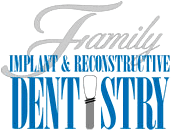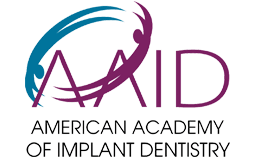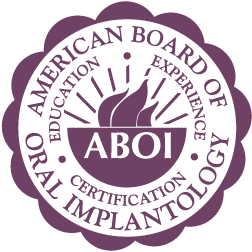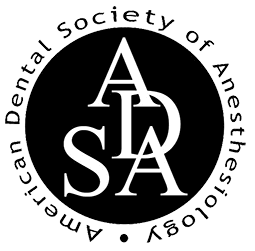Getting the Right Whitening Treatment for Your Teeth
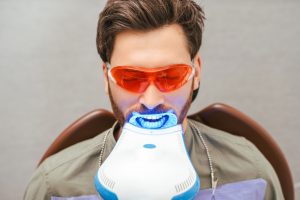 Teeth stains are a common dental issue that affects people of all ages. They can make your teeth look yellow or discolored, often affecting your confidence and self-esteem. There are several types of teeth stains, and your treatment options will depend on the type of stains your teeth present.
Teeth stains are a common dental issue that affects people of all ages. They can make your teeth look yellow or discolored, often affecting your confidence and self-esteem. There are several types of teeth stains, and your treatment options will depend on the type of stains your teeth present.
At Family Implant and Reconstructive Dentistry, our Havre De Grace, MD dentist provides cosmetic dentistry services like professional teeth whitening so you can achieve the stunning, bright smile you desire. Discover how our dentist can help tackle teeth stains with professional teeth whitening.
Extrinsic Teeth Stains
Extrinsic stains are the most common type of teeth stains, and they occur on the surface of the teeth. These stains are caused by external factors, such as:
- Smoking or chewing tobacco
- Drinking coffee, tea, or red wine
- Consuming foods with strong pigments, like berries, tomato sauce, or soy sauce.
Treatment
Fortunately, extrinsic stains are easier to remove since they don’t penetrate the tooth’s enamel. Extrinsic teeth stains can be removed through professional teeth cleaning or teeth whitening treatments, such as in-office whitening.
In-office teeth whitening is generally the best professional treatment option. In-office whitening involves a dental professional applying a strong bleaching agent to the teeth and using a special light to activate the whitening process. This method can effectively remove surface stains caused by external factors such as coffee, tea, and tobacco use.
An in-office whitening treatment may not be suitable for individuals with sensitive teeth. Your dental professional will advise you on the best treatment option for your specific needs.
Intrinsic Teeth Stains
Intrinsic stains occur inside the tooth, and they’re caused by internal factors, such as:
- Genetics
- Medications
- Trauma
- Excessive fluoride
Treatment
 Intrinsic stains are more challenging to remove since they’re embedded deep within the tooth enamel. Intrinsic teeth stains require professional teeth whitening treatments, such as in-office whitening, custom-made at-home whitening kits, or porcelain veneers. A dentist may also recommend microabrasion or bonding, depending on the severity of the stain.
Intrinsic stains are more challenging to remove since they’re embedded deep within the tooth enamel. Intrinsic teeth stains require professional teeth whitening treatments, such as in-office whitening, custom-made at-home whitening kits, or porcelain veneers. A dentist may also recommend microabrasion or bonding, depending on the severity of the stain.
Consult with our dentist to determine the best treatment option for you if you struggle with intrinsic tooth stains.
Age-Related Teeth Stains
Age-related tooth stains occur naturally as we age. As we get older, the outer layer of enamel on our teeth becomes thinner, revealing the yellow dentin beneath the tooth surface. Over time, teeth become more porous and can more easily absorb pigments from foods, drinks, and tobacco.
Treatment
Mild to moderate age-related teeth stains can be treated with professional teeth whitening treatments, such as in-office whitening, custom at-home whitening kits, or over-the-counter whitening products like whitening toothpaste or strips.
For severe cases, we can treat them with dental bonding or porcelain veneers. It’s important to consult with your dentist to determine the best treatment option for your specific needs. They can assess the condition of your teeth and recommend the most appropriate treatment to help you achieve a brighter, more youthful-looking smile.
Professional Teeth Whitening Treatments for All Types of Teeth Stains
Professional teeth whitening treatments are the most effective way to remove all types of teeth stains. Depending on the type of teeth stain you have, our cosmetic dentist may recommend one of the following teeth whitening treatments:
- In-Office Whitening: In-office whitening is a procedure performed by a dentist. It involves applying a strong bleaching agent to the teeth and using a special light to activate the whitening process. In-office whitening is best for severe extrinsic and intrinsic tooth stains.
- At-Home Whitening Kits: At-home whitening kits include custom-made trays filled with a whitening gel and worn for a specific amount of time each day. At-home whitening kits are best for mild to moderate extrinsic and intrinsic tooth stains.
- Porcelain Veneers: Porcelain veneers are custom-made shells placed over the teeth to improve their appearance. They’re best for severe intrinsic teeth stains that can’t be treated with other teeth whitening methods.
- Microabrasion: Microabrasion is a technique used to remove surface stains from teeth. It involves using mild acid to remove the outer layer of enamel and then polishing the teeth to improve their appearance. Microabrasion is best for mild to moderate extrinsic teeth stains.
- Bonding: Bonding is a technique used to cover teeth with a tooth-colored resin material to improve their appearance. Bonding is best for mild to moderate intrinsic teeth stains.
Frequently Asked Questions
Can teeth stains be prevented?
Can over-the-counter whitening products remove extrinsic stains?
Can everyone undergo teeth whitening treatment?
How long does teeth whitening take?
Unlock Your Whitest Smile Yet at Family Implant and Reconstructive Dentistry
If you’re struggling with teeth stains, it’s important to consult with a dental professional to determine the best treatment option for your specific needs. Contact our Havre De Grace, MD dentist today at (410) 939-5800 to schedule a consultation and achieve a brighter, more confident smile.
